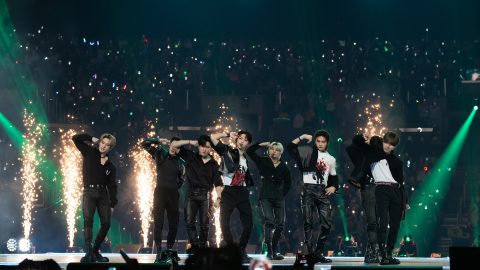
Between the first and second seasons of Apple’s wholesome football comedy Ted Lasso, a couple of incredible things happened in the real world. Firstly, the show received a historic 20 Emmy nominations – until then unheard of for a TV series in its freshman year. Secondly, and crucially: England made it to their first men’s football tournament final in 55 years, losing to Italy at Wembley in the Euros. They would have won, too, if it weren’t for a pesky penalty shootout.
Ted Lasso is about a fictional Premier League team, AFC Richmond, and the titular American football coach – who has no prior experience in what they call “soccer” – tasked with coaching them back to greatness. It didn’t really matter if you weren’t into football, the first lot of episodes were more interested in teamwork, kindness and camaraderie. Season two carries these same beliefs, but also feels eerie and particularly moving after we’ve watched the likes of Marcus Rashford, Jadon Sancho and Bukayo Saka speak up for many of the same things. Jason Sudeikis, creator and star of the show, clearly knows this: at the recent premiere, he wore a sweatshirt with the names of those three players (who missed the pivotal England penalties and faced a subsequent barrage of racist abuse) emblazoned across it.

Similarly to those England players, AFC Richmond suffered a crushing defeat to Manchester City in the last episode of season one and were relegated. But in true Ted Lasso form, we were left with hope for a brighter future. Season two begins with more disappointments on the pitch (and a penalty subplot which hits a bit too close to home), yet the introduction of new therapist Dr Sharon (Sarah Niles) allows a deeper, more earnest look into the frustrations and insecurities these men face in every part of their lives.
The club’s star player, traitor and pretty boy Jamie Tartt is back (with a fresh haircut definitely inspired by Aston Villa/England heartbreaker Jack Grealish) to learn about patience and selflessness alongside his teammates, while the now-retired Roy Kent (Brett Goldstein) finds his post-career feet by coaching kids and nurturing his relationship with Richmond’s charming marketing whizz Keeley (Juno Temple). A Christmas-themed episode worthy of Notting Hill or Love Actually speaks to Ted Lasso’s enormous heart, and the writers’ ability to make us go all mushy without ever allowing things to get too mawkish.

But the best bits of Ted Lasso‘s return are the ones which echo the bravery of England’s heroes. The third episode sees defender Sam Obisanya take a stand against one of Richmond’s sponsors, following their questionable actions in his native Nigeria. “I’m not here to talk about football,” he says at a press conference. It’s impossible not to think of Marcus Rashford, who has been tirelessly fighting against racism, homelessness and child hunger in the UK. The difference? Sam isn’t told to focus on “penalties, not politics,” like Rashford was. Instead, Ted and the whole Richmond team rally around him.
Ted Lasso is about more than just football: in season two we get to know the players better for their strength and their fearlessness, and we’re graced with empathetic, hopeful storylines that tell us – like Saka said only last week – that love does win. It’s about our world as it could be. As it should be.
‘Ted Lasso’ season two arrives on Apple TV+ tomorrow (July 23)
The post ‘Ted Lasso’ season two review: proof that football can be a force for good appeared first on NME.










